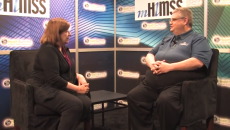Telehealth
A new House bill introduced on Dec. 30 that would expand telehealth services in Medicare and Medicaid programs has garnered the support of the American Telemedicine Association.
Mobile health is one of the more transformative developments in healthcare, according to Patricia Abbott, associate professor of nursing at the University of Michigan, School of Nursing, Division of Nursing Business and Health Systems. "The real winners will be the ones who grab on in the front end, and don't wait," she says.
There's a new app that can help caregivers and clinicians monitor the heart rate and respiratory activity of a patient; it's called SecuraFone, powered by Hermosa Beach, Calif.-based SecuraTrac.
Some fear mobile healthcare could replace the need for doctors in some cases, but according to Patricia Mechael, executive director of the mHealth Alliance, mHealth will only help doctors make better decisions. It won't replace them.
The Federal Communications Commission will make $400 million available annually to healthcare providers to expand the development of broadband telehealth networks from a pilot to a permanent program. The pilot program has supported 50 provider healthcare networks in 38 states.
Roy Shoenberg, CEO of American Well, discusses his vision for the future of telehealth. Schoenberg heads the company's product development as well as the rest of its operations divisions.
Telehealth used to be something few people knew about, or understood. Today, it is fast taking its place as a major aspect of healthcare, according to experts at the National eHealth Collaborative's Technology Crossroads Conference in Washington, D.C., on Nov. 27.
Bernie Monegain, editor of Healthcare IT News, discusses Intermountain Healthcare's mobile apps and the future of mobile health with chief technology officer Frederick Holston at the 2012 mHealth Summit.
The American Telemedicine Association is working with three minority legislative caucuses to educate lawmakers and introduce model legislation for telehealth and mobile health in statehouses around the country.
Electronic tools, including smartphones, can help patients, but the adoption of apps for healthcare is still lagging, according to a new report released by the Bipartisan Policy Center in Washington, D.C.
